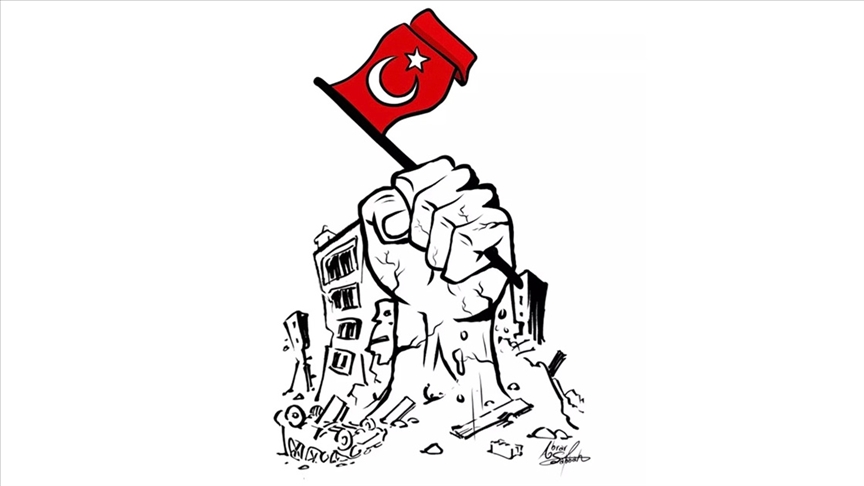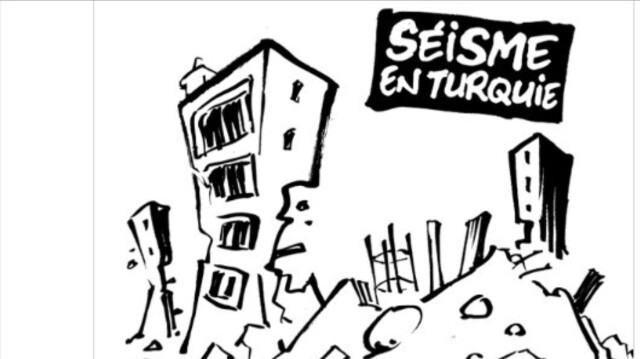At the time when Prophet Muhammad (pbuh) performed the emigration to Medina, half of the population of the city consisted of the members of the Banu Qaynuqa, Banu Nadir and Banu Qurayza tribes, all of which were Jewish tribes. There is no accurate information as to when the Jews began to settle in the Arabian Peninsula, or more specifically, in Medina. There are also views that suggest that the Jews in the Arabian Peninsula did not immigrate from outside of the Arabian Peninsula, but in fact were Arabs who had accepted Judaism. Another view is that they came to the peninsula from other places, yet there are many different views as to exactly when they arrived. According to some accounts, Jews had been expelled from Palestine after Jerusalem was invaded by Buhtunnasr, the king of Babylon (B.C 605-562), and after the fall of the Temple of Solomon or other various attacks; they then settled around certain regions of the Arabian peninsula such as the Hejaz, Vadi'l-qura, Khaybar, Tayma, Yathrib and Ayla. Among these were the Jews who came to Yathrib and settled around the outskirts of the city. In the course of time, they became stronger and expelled the Amaliqa and the Jurhumians and thus gained control of the city. When a flood, known as Sayl al-Arim, occurred in Yemen in the second century AD, Hâritha ibn Tha‘laba ibn Amr Muzaykiya, a member of the Azd branch of Qahtania, left the region and settled in the surrounding area of Yathrib and from his descendents over time the Aws and Khazraj tribes came into existence; these tribes became stronger than the Jewish tribes and and gained control of the city. After having lost their superiority over the Aws and Khazraj, the Jewish tribes continued to live, some siding with the Aws and some with the Khazraj in any conflicts that occurred between these two tribes. For instance, in the Battle of Buas, which broke out five years before the emigration (617 AD) the Banu Qurayza and Banu Nadir Jews formed an alliance with the Aws, while the Banu Qaynuqa tribe sided with the Khazraj; the battle ended with the defeat of the Khazraj. Moreover, there were also various conflicts and skirmishes between the Banu Qaynuqa and other Jewish tribes.
Contrary to their situation in the political arena, the Jewish tribes were stronger than the Arabs economically. Agricultural, ironworking, arms manufacturing, textile and jewelry businesses were all under the control of the Jews. The Banu Qaynuqa was prominent in the jewelry business, the Banu Nadr in agriculture and the Banu Qurayza tribe in the leather business. The Jewish tribes had become wealthy by attending cattle fairs and when they could not collect the loans which they provided with interest, they impounded the estates and assets of the debtors, and thus began to live in prosperity. There were also Jews who gained income from fortune telling and prophesying. The Jews also had Baytulmidras, a religious education center. It is known that Prophet Muhammad and some companions had gone to this center to convey the message of Islam and for other purposes.
The Banu Qaynuqa, who resided in the southwest of Medina, lived in castles called utum; there were many of these in Medina. Banu Qaynuqa, known for their courage and warrior-like qualities amongst the Jewish tribes in Medina, made a living from trading, arms manufacturing and particularly from jewelry. For this reason they did not possess agricultural lands. There were markets, known as Suq Banu Qaynuqa, in Medina and both Jews and Muslims used these marketplaces. Due to such activities the Banu Qaynuqa became wealthier than other Jewish tribes.
The members of the Banu Qaynuqa tribe participated in the Medina Document as allies of the Khazraj tribe. This agreement was made by the Prophet with the Arabian and Jewish tribes after the emigration to Medina. In this agreement it was decided that the Jews would help in case of a strike against Medina; a strike against one side would be considered as having been made against the other side. If such a situation were to occur they would defend together, and the Jews agreed that they would not ally with the Quraishis or with other enemies of the Muslims.
Prophet Muhammad's attitude towards the Jews in Medina brought some positive results; Abdullah ibn Salam, a scholar in the Banu Qaynuqa tribe, became Muslim with his family. However, in general the Jews did not accept the teachings of the Prophet because they thought that a new prophet would appear from among them. The Jews carried out some activities to try to turn the Muslims away from Islam, and from time to time they were mocking the Quran and the Prophet. They were trying to create a conflict between the Aws and Khazraj tribes by reminding them of their former hostilities, and they were encouraging the hypocrites. Some of them among the hypocrites, even though they said that they had accepted Islam. The Jews were annoyed with the victory of the Muslims in the Battle of Badr against the idolaters. They showed their displeasure in a variety of ways and began to run riot. In response to this, the Prophet one day gathered the Jews in the Banu Qaynuqa market place and told them that he was the true prophet for whom they had been waiting and giving as example the experiences of the Quraishis he asked them to become Muslim. However, the Jews told the Prophet that they would not be deceived by his victory against the Quraishis, because the latter were not competent in the art of war. The also arrogantly stated that the Prophet would have seen what battle really was and how strong the Jews were if he had fought a war against them. It is accounted that the following verses was sent in response to the Jews: "Say O Muhammad unto those who disbelieve: You shall be overcome and gathered unto Hell, an evil resting-place. There was a token for you in two hosts which met: one army fighting in the way of Allah, and another disbelieving, that they saw as twice their number, clearly, with their very eyes. Thus Allah strengthened with His succor that He will. O! Herein verily is a lesson for those who have eyes" (Al-i Imran, 3/12-13).
While this tension continued, an incidence occurred in the Banu Qaynuqa market which was to become the final straw. The wife of a Companion went to a jeweler in the Banu Qaynuqa market place. The Jews harassed her and the woman called for help. One of the Muslims heard the woman and he killed the jeweler, who was a member of the Banu Qaynuqa. The Jews then killed this man. Prophet Muhammad and the Muslims were deeply concerned by this incidence, which showed that the agreement had no importance anymore and that it had been violated. The Prophet was concerned that the Banu Qaynuqa, the first tribe to violate the agreement, could now betray them at any time. In response to this, the following verse was sent: "And if you fear treachery from any folk, then throw back to them their treaty fairly. O! Allah does not love the treacherous" (Al-Anfal, 8/58). The Prophet laid siege to the district of Banu Qaynuqa in the middle of the month of Shawwal, 20 months after the emigration. He wore his armor, known as Zatu al-Fudul and gave the banner to his uncle, Hamza ibn Abdulmuttalib. During the siege, which lasted for fifteen days, up until the beginning of Dhu al-Qi'dah, the Banu Qaynuqa Jews, who were held up in the castle, were compelled to surrender, although no combat occurred nor was any arrow shot. The Jews agreed that the Prophet was to make the decision on the outcome of the war; he did not accept their request to be released (Dhu al-Qi'dah 2/April 624). Prophet Muhammad decided that the male warriors among the prisoners of war, whose number were said to be 700, were to be put to death. Upon hearing this, the leader of the Khazraj tribe, Abdullah ibn Ubay ibn Salul, told the Prophet that the people of the Banu Qaynuqa were allies of the Khazraj tribe, that they had helped them, particularly in the Battle of Buas; he requested that Muhammad forgive them. Although the Prophet knew that Abdullah ibn Ubay was the leader of the hypocrites, he revoked his decision to take the men's lives, and ordered that the Banu Qaynuqa Jews were expelled from Medina, with the condition that their possessions would remain with the Muslims. The Prophet gave a period of three days to the Banu Qaynuqa Jews to leave Medina. He assigned Muhammad ibn Maslama to take their possessions, and he assigned Ubada ibn Samit to supervise the tribe members until they left Medina. The Banu Qaynuqa Jews requested permission to to collect their debts, and they were allowed to do so. The Prophet told the Banu Qaynuqa Jews that they could return to Medina to carry out business and stay there for three days. The Banu Qaynuqa Jews left Medina under the supervision of Ubada ibn Samit, leaving many arms and materials used in arms manufacturing and jewelry. They stayed in Wadi al-Qura for about a month and then went to Syria and settled in Azriat.
The Prophet took three swords, three spears, two suits of armor and two bows from the loot and he took one-fifth of the loot (khumus), sharing out the remaining four-fifths among the Muslims. The Prophet also gave some armor to Muhammad ibn Maslama and Sa'd ibn Muadh. There is a disagreement in the Islamic history as to when the practice of khumus was first implemented. Some assert that khumus was first practiced when sharing out the loot from the Battle of Banu Qaynuqa. However, there are also accounts that state that during the night raid of Abdullah ibn Jahsh and during the Battle of Badr, both of which occurred before the Battle of Banu Qaynuqa, khumus was implemented when sharing the loot. It is also asserted that the first practice of khumus was performed in Banu Qaynuqa after the conveyance of the related verse: "And know that whatever you take as spoils of war, O! A fifth there of is for Allah, and for the messenger and for the kinsman and orphans and the needy and the wayfarer, if you believe in Allah and that which We revealed unto Our slave on the Day of Discrimination, the day when the two armies met. And Allah is able to do all things" (Al-Anfal 8/41).
Hypocrites
One of the problems that Prophet Muhammad (pbuh) experienced in Medina was the problem of factions. There was a community who pretended to be believers although they did not believe in Islam or the prophethood of Prophet Muhammad. The instigator of this was Abdullah ibn Ubay ibn Salul. Abdullah ibn Ubay ibn Salul was the leader of the Khazraj tribe, and after the end of the battles between the Aws tribe and the Khazraj tribe it was agreed that the control of Yathrib would be handed over to him. However, this agreement could not be actualized when the Prophet emigrated and Abdullah ibn Ubay ibn Salul displayed hostility towards the Prophet for this reason until his death. The Jews in Medina and the Quraishi idolaters in Mecca incited this hostility. In addition to Abdullah ibn Ubay ibn Salul, there were other hypocrites who advised their fellow townsmen not to support the emigrants in any way, wanting them to leave the city. The hypocrites always supported any faction that occurred in many of the incidents during the Medina period and they tried to weaken the union of the Muslims. The chapter of the Quran entitled the Hypocrites, the sixty-third surah, was sent in relation to this community and other similar communities.
Subscribe to:
Post Comments (Atom)









No comments:
Post a Comment